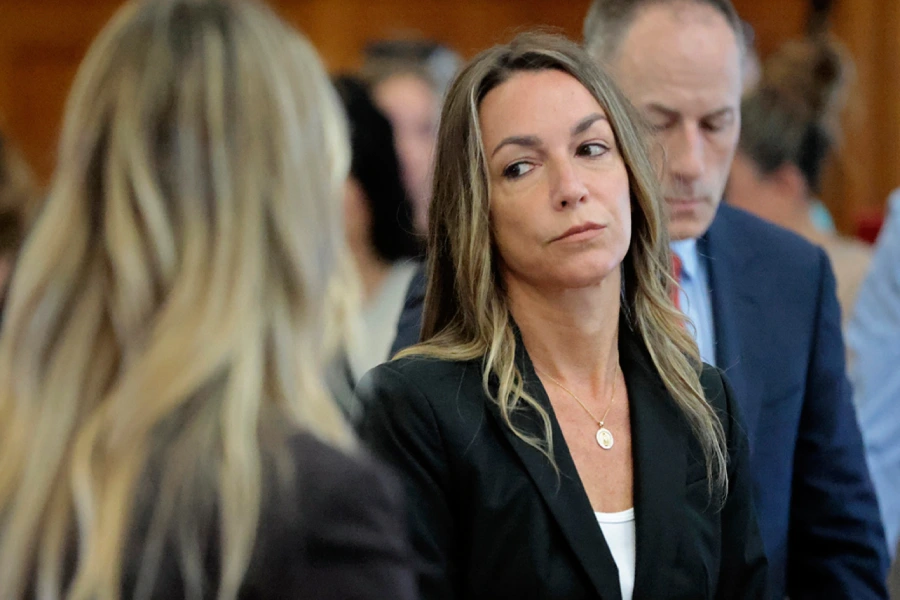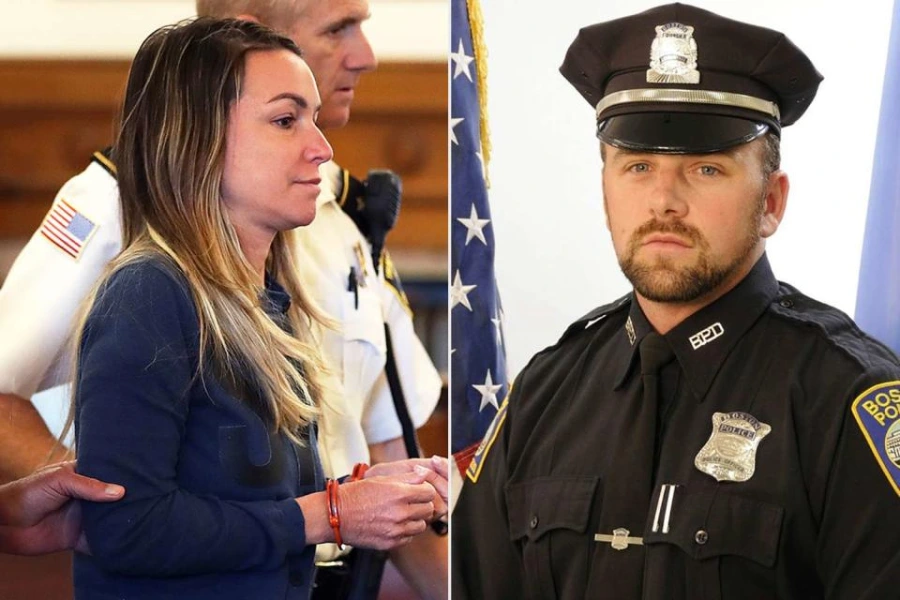Karen Read’s retrial has drawn significant media attention and public interest as it involves serious charges related to the death of her boyfriend, Boston police officer John O’Keefe. The case raises critical legal questions surrounding vehicular homicide, evidence credibility, and police investigation ethics.

Overview of Karen Read Case
On January 29, 2022, Karen Read allegedly struck John O’Keefe with her Lexus SUV after a night of drinking at a party in Canton, Massachusetts. O’Keefe was left outside during a severe blizzard and later died from injuries sustained in the incident. Karen Read faces charges of second-degree murder, manslaughter while intoxicated, and leaving the scene of a fatal accident.
The initial trial, held in 2024, ended in a mistrial because the jury was deadlocked. Now, in the second trial, the prosecution has adopted a more focused and streamlined strategy to prove guilt beyond reasonable doubt.
Key Legal Issues in the Karen Read Trial
1. Intent and Criminal Responsibility (Mens Rea)
The prosecution must prove that Karen Read acted with intent or reckless disregard that caused John O’Keefe’s death. The charge of second-degree murder requires demonstrating that Read knowingly caused harm or exhibited a depraved indifference to human life.
The defense challenges this by arguing the collision was accidental or that Read lacked intent, which is crucial in distinguishing murder from manslaughter or lesser charges.
2. Reliability of Crash Reconstruction Evidence
Crash reconstruction experts, like Dr. Judson Welcher, testify about the vehicle’s damage and collision speed. According to the prosecution’s expert, the damage indicates the SUV was moving faster than 8 mph when the collision happened.
However, Karen Read’s defense calls their own experts, including Matthew DiSogra, to contest these findings, emphasizing potential inaccuracies in the reconstruction process or assumptions made by prosecution experts.
3. Investigator Bias and Its Legal Impact
One of the most controversial aspects of this case is the conduct of Michael Proctor, the lead investigator fired for sending sexist and inappropriate texts about Karen Read. This raises questions about investigative bias and the integrity of evidence collection.
Defense attorneys argue that Proctor’s bias led to a flawed investigation, neglecting alternative suspects or evidence that might favor Karen Read’s innocence, thus supporting the claim of reasonable doubt.
4. Leaving the Scene of the Accident
Karen Read is also charged with leaving the scene of a fatal crash, a serious offense. Legally, anyone involved in a fatal accident must stop, assist the victim, and report the incident. The prosecution alleges Read failed to fulfill these duties, which worsens her legal standing.

What to Expect Next in the Retrial
The defense is expected to begin calling witnesses, including experts from accident reconstruction firms, to provide a broader and more robust case. Karen Read has not yet confirmed whether she will testify, but her legal team aims to challenge the prosecution’s narrative.
Why the Karen Read Case Matters
This case is a prime example of the challenges in prosecuting vehicular homicide and related charges when evidence and witness credibility come into question. It also highlights the importance of ethical conduct within law enforcement and how investigator misconduct can impact criminal trials.
Conclusion
The Karen Read retrial serves as a critical case study in criminal law, especially concerning vehicular homicide, forensic evidence, and the influence of police conduct on justice. The outcome will depend heavily on the defense’s ability to question the prosecution’s evidence and present alternative explanations.
As the trial progresses, close attention will be paid to witness testimonies and expert analyses, making this a landmark case for both legal professionals and the public.
FAQ
Q1: Who is Karen Read?
Karen Read is the defendant accused of killing her boyfriend, John O’Keefe, a Boston police officer, by hitting him with her SUV in 2022.
Q2: What are the charges against Karen Read?
She faces second-degree murder, manslaughter while intoxicated, and leaving the scene of a fatal accident.
Q3: What role does crash reconstruction play in the trial?
Experts analyze vehicle damage to estimate collision speed and impact force, which helps determine intent and liability.
Q4: Why was the first trial a mistrial?
The jury could not reach a unanimous decision, resulting in a mistrial.
Q5: How does investigator Michael Proctor’s misconduct affect the case?
His biased behavior undermines the credibility of the investigation, which the defense argues creates reasonable doubt.
Q6: Has Karen Read pleaded guilty?
No, she has pleaded not guilty to all charges.

